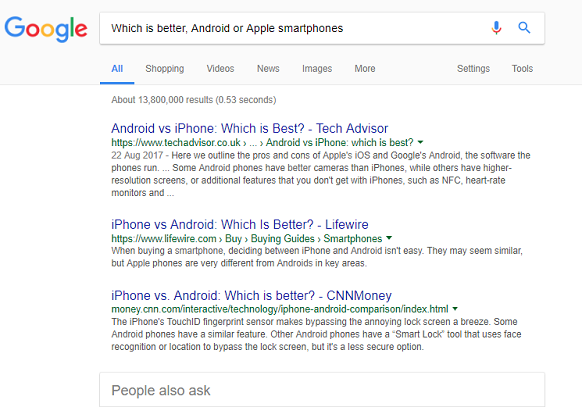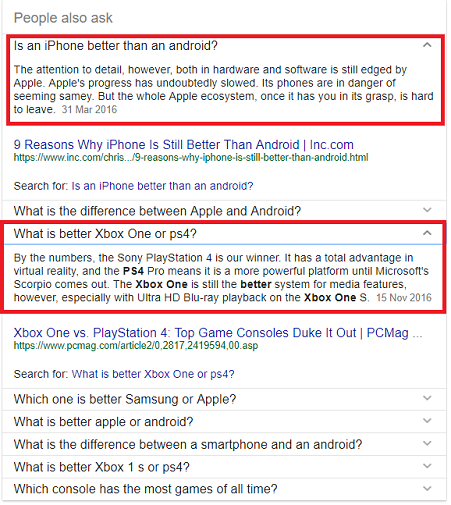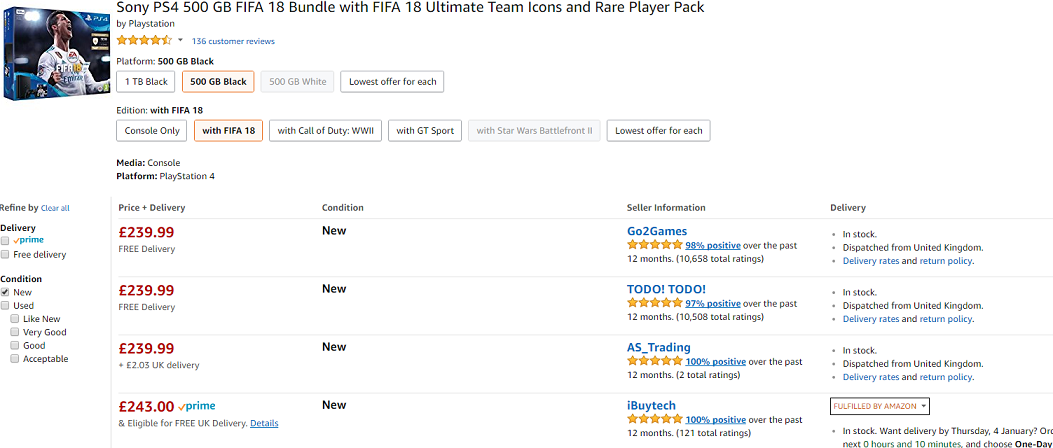
Whether you're a Millennial, a Generation Z, or just someone who spends a lot of time online, in this day and age we now expect to be able to get what we want almost instantly. Need somewhere to eat? Google it. Need new headphones? Amazon it. Need to get hold of someone? Facebook them.
The internet has given us all the expectation that instant gratification can be had at the push of a button, but how impulsive are we when it comes to parting with our money? How has the online search game changed the way we shop?
Well, although it is much easier now to shop online than it is to elbow your way through in-store January sales, many will still choose to research a product before buying. This will vary between shoppers; some will choose to look at a product in a shop and find it cheaper online, and others will do some online research before going into stores. Either way, online research and instore/online shopping now come in hand in hand and that's something to keep in mind when creating your online marketing campaign.
Here are some of the ways search effects the buying process and what you can do to capture this traffic:
Online Inspiration
People want, but they don't always know what they want. It's human nature; we get an idea but we want to know what everyone else is doing before making a final decision. So to start the research process we turn to a search engine; "cool room inspiration", "Secret Santa ideas", "hair inspiration", sound familiar?
With so many options to browse through its no wonder that people look online for ideas when they at a loss as to where to start.

Pinterest has built its empire on people's desire to be inspired. Losing the need for any written information, this visual platform gives us everything we need to get inspired all in one place. Social media is a great way to capture customers in their research stage. For visual inspiration, Pinterest and Instagram are great. To extend your reach and try to inspire those who didn't know they wanted to be inspired, Facebook and Twitter are very helpful too. Use hashtags to appear on relevant searches and capture this attention.
For more product specific searches, such as "flooring inspiration" a blog is a fantastic way to inspire and inform at the same time. Blogs are a vital way of not only inspiring customers but also for getting them to the products you actually sell, which is often where social media can fall short.

Relevant, well-ranking blogs don't only attract organic website traffic, they can also give the customer examples of options they can get from you. Although they still may not be ready to make an actual purchase, your brand will be in their mind when they do.
Research and Rethink
We want answers and we want them now, and luckily it's actually as easy as that. Of course, the internet is full of bias and misguided articles, but we still seem to trust a lot of what Google tells us. For instance, let's look at two of the biggest searches from the Christmas period:
"Which is better, Android or Apple smartphones?"
"Should I get an Xbox or a PlayStation?"

So following my initial search of "which is better, Android or Apple smartphones", Google gives me three relevant, recent articles. However, none of which give me my answer in the visible description, I could click but with my need for instant gratification my eye quickly goes to the "People also ask" snippet which gives me an instant answer:

The top result in the snippet box actually seems a lot more bias, with a leading question of "Is an iPhone better than an Android". It seems like the same question I asked originally, but before i've even read the description it gives me the impression that Apple has the edge, later confirmed by the description, so I don't even need to read the full article. Despite this being an older article than the top result, it answers my question quicker.
Without even searching for my next question, Google anticipates that I'm also needing advice regarding my Xbox/PS4 dilemma, another 2016 article lets me know that PlayStation comes out on top. So there we go, I'm getting an iPhone and a PlayStation 4 for Christmas (lucky me, right?).
Of course, it's not as simple as that, many people will do further research before parting with the money particularly for these pricey items. Which is exactly why blogs are still so important for capturing organic traffic for those who do want more information.
However, it does highlight how important Google featured snippets have become, which is why we have previously written a blog about how to capture a snippet. With any of these products, a large part of it is personal preference, but for those with no opinion formed already, search research may be the thing that swings them either way.
It's important to find out what your target audience is trying to research and create useful content that answers their questions, remain informative and interesting to get your opinion across - and do it quickly.
Browse before you buy
In a way, search does also make the selling process far more competitive than when people shop in person. Although you may be able to find a product a couple of quid cheaper somewhere else, half the battle is won by the time you're in the store. Often, it's easier to be slightly unaware that a product is available for a couple pounds cheaper in a different store than to physically go store to store checking, and having to go back to find wherever the cheapest one was.
But that's easy to do online so can make all the difference. It takes seconds to whip out your mobile phone and find out where to find the cheapest deal can be found. Amazon even makes a point of pointing out to you that you can find it cheaper somewhere else, which is great for me as a consumer as I look for that new PlayStation 4 of mine:

Now I can see the cheapest option, the reputation of the seller and the delivery cost. If I'm quick I can pay a bit extra and get it tomorrow - instant gratification indeed.
Clearly, this puts pressure on ecommerce websites who now need to stand out in an over-saturated online market. Be sure to compare your prices and deals with your competitors, ask yourself: How much am I charging for my product/service? Is it still a good deal after delivery? Does my website make the product/service stand out from my competitors?
We recently did a blog on how to make your ecommerce website stand out, which you may find helpful. You can find it by clicking here.
In Conclusion
The way we research online before means that creating relevant content is more important than ever to not only attract traffic to your website but to inform potential customers that what you're selling is worth buying, whether they buy from you instore or online.
Inspiring them to aspire to have your product/service is the first step, then its time to explain why you're the best place to make that purchase. Keep an eye on your competitors, the quality of your website and products, and what your customers need from you in order to make the most of search.
If you want any advice on your online marketing, from website design to SEO we can help. Contact us today to get help from our friendly specialists.